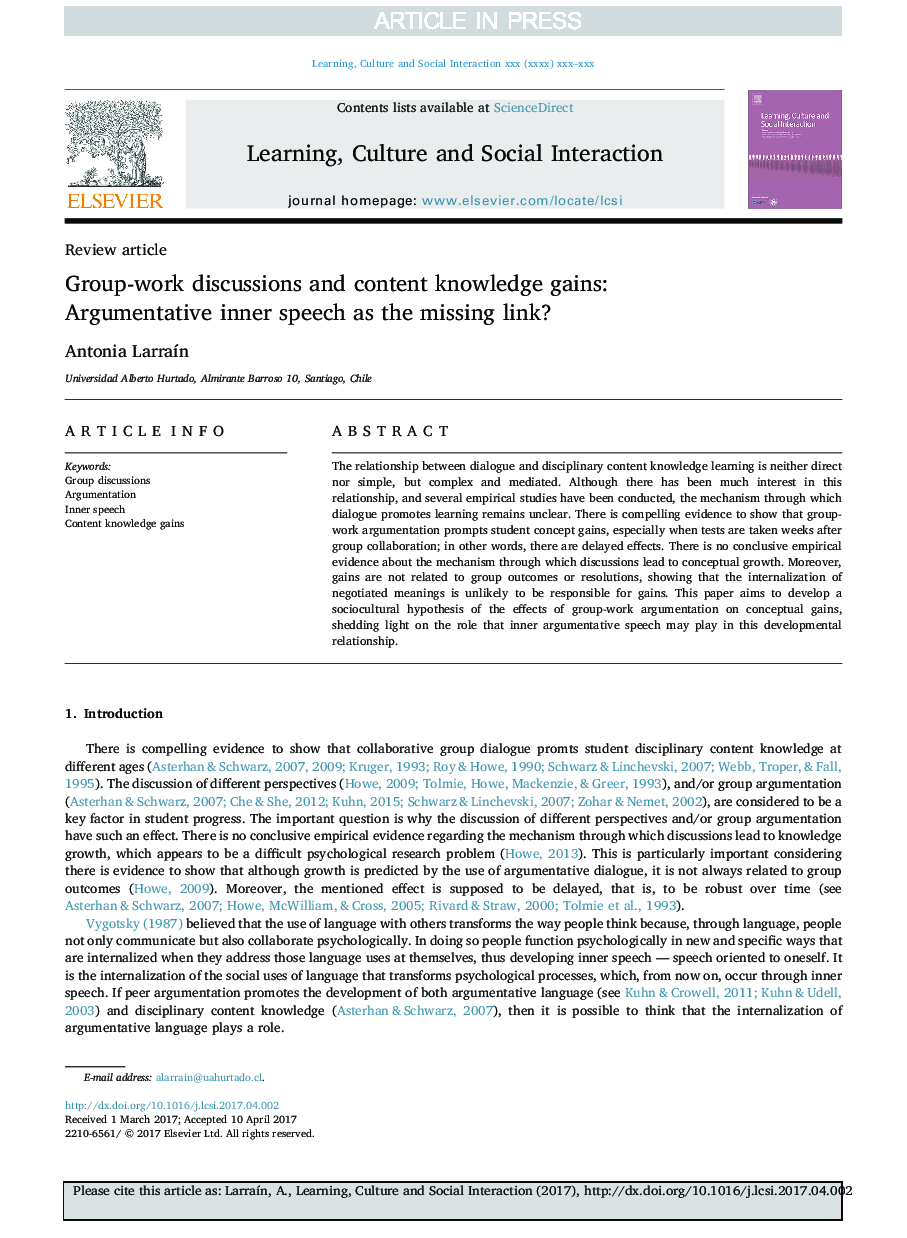| Article ID | Journal | Published Year | Pages | File Type |
|---|---|---|---|---|
| 4939886 | Learning, Culture and Social Interaction | 2017 | 12 Pages |
Abstract
The relationship between dialogue and disciplinary content knowledge learning is neither direct nor simple, but complex and mediated. Although there has been much interest in this relationship, and several empirical studies have been conducted, the mechanism through which dialogue promotes learning remains unclear. There is compelling evidence to show that group-work argumentation prompts student concept gains, especially when tests are taken weeks after group collaboration; in other words, there are delayed effects. There is no conclusive empirical evidence about the mechanism through which discussions lead to conceptual growth. Moreover, gains are not related to group outcomes or resolutions, showing that the internalization of negotiated meanings is unlikely to be responsible for gains. This paper aims to develop a sociocultural hypothesis of the effects of group-work argumentation on conceptual gains, shedding light on the role that inner argumentative speech may play in this developmental relationship.
Keywords
Related Topics
Social Sciences and Humanities
Psychology
Developmental and Educational Psychology
Authors
Antonia LarraÃn,
